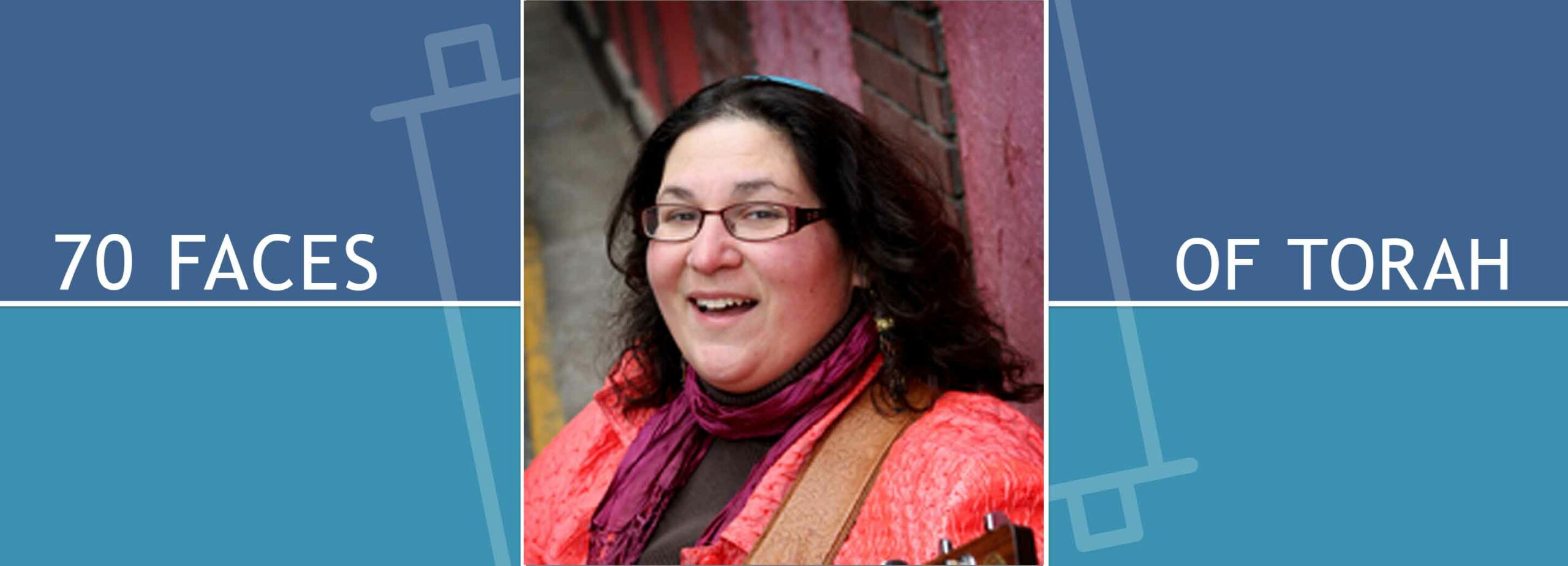Seventy Faces of Torah Write Your Own Song

I was sitting recently with some fellow teachers, discussing the challenge of getting our teenage students to study texts with the depth and attentiveness we think they deserve. One person pointed out that this was particularly difficult when it came to texts they had seen before; passages we thought were worthy of another look, such as verses of Torah, are often dismissed with, “But, we’ve read this before.”
What is it about words on a page that cause this reaction? After all, this teacher reflected, if this were a good song we were asking them to sing, none of them would say, “But, we’ve sung this before.”
Teenagers often speak truths that they will later be socialized to conceal. And the difficulty of how to work with material we’ve seen before — whether it’s words on a page or recurring patterns in our own lives — is very real.
In this week’s Torah portion, Vayelech, Moses may be — or should be — concerned with just this problem. Knowing that he cannot enter the land with the people, Moses finishes giving them all the wisdom and instruction he can, and then takes everything he has said and writes it down: “And Moses wrote this torah, and delivered it unto the priests the sons of Levi, who bore the ark of the covenant of Adonai, and unto all the elders of Israel” (Deuteronomy 31:9).
His hope is that the people will carry with them these written words (which cover material they have already heard), both following his instructions and valuing the text as something to which they can keep returning (even though “we’ve heard this before”).
God also seems concerned that even though they have these words of wisdom, this treasury of stories and rules to live by, the people will not pay attention once Moses is gone. God’s idea is different though: “Now therefore,” says God, “write this song for yourself, and teach it to the children of Israel; put it in their mouths….” (Deuteronomy 31:19). Does God have some insight here that Moses is missing about how to make Torah unforgettable?
From the wording of this same verse — “write this song for yourself” — our tradition derives the mitzvah (commandment) that every single one of us should write our own Torah. And the fact that God describes this Torah as “shira” (song or poem) teaches us something about what kind of Torah we need to write for ourselves.
How can we best shape a Torah — a storehouse of wisdom and instruction and stories and traditions — that we can carry with us into territory in which our elders cannot guide us? The use of the word shira suggests that this precious legacy needs to be carried not only as words on a page — we’ve read those already! — but as a song in our mouths and in our hearts.
A few years ago, I was visiting Betty, a congregant whose dementia hit her long before anyone in her family was ready, in the county-run nursing home. She could no longer respond to my greeting, and she didn’t even seem to register that I was there. But Betty had come to Shabbat morning services every week, and I knew that the melodies of the prayers and blessings had stayed with her much longer than her everyday speech.
So as I sat with her on the nursing home ward, I began singing “Adon Olam.” And Betty perked up, looked at me and started singing along. She remembered every word. When the rest of language leaves us — in dementia, in aphasia, in stuttering — song often remains. This must be what God knew when teaching us to write our own Torah, our own song.
Parshat Vayelech is read between Rosh Hashana and Yom Kippur on Shabbat Shuva, whose name means “the Shabbat of Return.” This Shabbat takes its name from the opening word of the verses we read from the book of Hosea in the accompanying haftarah (the prophetic reading for the week): “Return, O Israel, to Adonai your God.”
These words? We’ve already read them. We read them every year. But have we turned them into song? Have we gotten them into our bodies and our mouths and our hearts so that our return to them is genuinely welcome and instructive? I’m not just talking here about literal singing. I’m talking about what singing has to teach us about the imperative to take what really matters to us and make it something we can carry in our very own bodies.
As we prepare for Yom Kippur — a day of rehearsing our own death with the hope and promise of being born into our own lives again — we can take seriously the mitzvah of writing our own Torah, our own song. We can reconstitute the many words on the page with the breath of our lungs, the deepest stories of our hearts and the truest actions of our lives.
Minna Bromberg, Rab’10, (minnabromberg.com) is a singer, songwriter and rabbi, and serves as coordinator of the Year in Israel Program for the Rabbinical School of Hebrew College.

